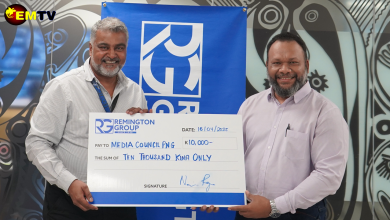Sanctions doubts grow as North Korea warns of 'gift packages' for U.S.
Image: North Korean leader Kim Jong Un participates in a meeting with the Presidium of the Political Bureau of the Central Committee of the WorkersÕ Party of Korea in this undated photo released by North Korea’s Korean Central News Agency (KCNA) in Pyongyang September 4, 2017. KCNA via REUTERS

By Stephanie Nebehay and Christine Kim
GENEVA/SEOUL (Reuters) – A top North Korean diplomat on Tuesday warned that his country is ready to send “more gift packages” to the United States as world powers struggled for a response to Pyongyang’s latest nuclear weapons test.
Han Tae Song, ambassador to the United Nations in Geneva, confirmed that North Korea had successfully conducted its sixth and largest nuclear bomb test on Sunday.
“The recent self-defence measures by my country, DPRK, are a gift package addressed to none other than the U.S.,” Han told a disarmament conference, using the acronym for the Democratic People’s Republic of Korea, the country’s formal name.
“The U.S. will receive more ‘gift packages’ … as long as it relies on reckless provocations and futile attempts to put pressure on the DPRK,” he added without elaborating.
U.S. Ambassador to the United Nations Nikki Haley on Monday accused North Korean leader Kim Jong Un of “begging for war” with a series of nuclear bomb and missile tests, and urged the 15-member Security Council to impose the “strongest possible” sanctions to deter him and shut down his trading partners.
But Russia’s U.N. Ambassador Vassily Nebenzia said on Tuesday a U.S. bid for the Security Council to vote on Sept. 11 on new sanctions is “a little premature.” Russia is a permanent member of the Security Council and wields veto power.
“I don’t think we’ll be able to rush it so fast,” Nebenzia told reporters. Russian President Vladimir Putin earlier on Tuesday said imposing more sanctions was a “road to nowhere.”
U.S. stocks sank, with the S&P 500 stumbling to its biggest single-day loss in about three weeks, as investors weighed the increasing tensions with North Korea.
Sanctions have done little to stop North Korea boosting its nuclear and missile capacity as it faces off with U.S. President Donald Trump who has vowed to stop Pyongyang from being able to hit the mainland United States with a nuclear weapon.
Haley acknowledged on Tuesday that further sanctions on North Korea are unlikely to change its behaviour but would cut off funding for its ballistic missile and nuclear programs.
“Do we think more sanctions are going to work on North Korea? Not necessarily,” she told the American Enterprise Institute think tank in Washington. “But what does it do? It cuts off the revenue that allows them to build ballistic missiles.”
MORE SANCTIONS?
North Korea said it tested an advanced hydrogen bomb for a long-range missile on Sunday, marking a major step in its goal of developing a nuclear-tipped missile that puts the U.S. mainland within range.
Satellite imagery appears to show the blast caused numerous landslides at North Korea’s Punggye-ri test site, according to 38 North, a Washington-based North Korean monitoring project.
White House spokeswoman Sarah Sanders said on Tuesday Trump continues to see denuclearization of the Korean Peninsula as the priority in how it responds to the latest nuclear weapons test.
Sanders said “all options are on the table,” including diplomatic and economic measures, but said talks with Pyongyang were not the current focus for the White House.
Diplomats have said the Security Council could consider banning North Korean textile exports, barring its airline and stopping supplies of oil to the government and military.
Other measures could include preventing North Koreans from working abroad and adding top officials to a blacklist aiming at imposing asset freezes and travel bans.
China accounted for 92 percent of North Korea’s trade in 2016, according to South Korea. China’s foreign ministry said on Tuesday it would take part in Security Council discussions in “a responsible and constructive manner”.
Trump and British Prime Minister Theresa May agreed in a telephone call on Tuesday that China must do more to persuade North Korea to cease its missile tests, a spokesman for May said.
South Korea said an agreement with the United States to scrap a weight limit on Seoul’s warheads would help it respond to North Korea’s nuclear and missile threat.
U.S. lawmakers and America’s biggest business lobby urged Trump not to scrap a free trade agreement with longstanding ally South Korea, especially at a time of heightened tensions.
Analysts and South Korean policymakers believe North Korea may test another weapon on or around Sept. 9, its founding day.
North Korea says it needs to develop its weapons to defend itself against what it sees as U.S. aggression.
South Korea, after weeks of rising tension, is talking to the United States about deploying aircraft carriers and strategic bombers to the Korean peninsula, and has been ramping up its own defences.
Trump and his South Korean counterpart, Moon Jae-in, agreed on Monday to scrap the warhead weight limit on South Korea’s missiles, South Korea’s presidential office said, enabling it to strike North Korea with greater force in the event of war.
South Korea and the United States are technically still at war with North Korea after the 1950-53 Korean conflict ended with a truce, not a peace treaty.
Each side has thousands of rockets and artillery pieces aimed at the other across the world’s most heavily armed border.
For graphic on nuclear North Korea click: http://tmsnrt.rs/2lE5yjF
(Reporting by Christine Kim and Stephanie Nebehay; Additional reporting by Christian Shepherd in Beijing, Michelle Nichols at the United Nations and Tim Ahmann and David Shepardson in Washington; Writing by Alistair Bell; Editing by Robert Birsel and James Dalgleish)
Copyright 2017 Thomson Reuters. Click for Restrictions.






